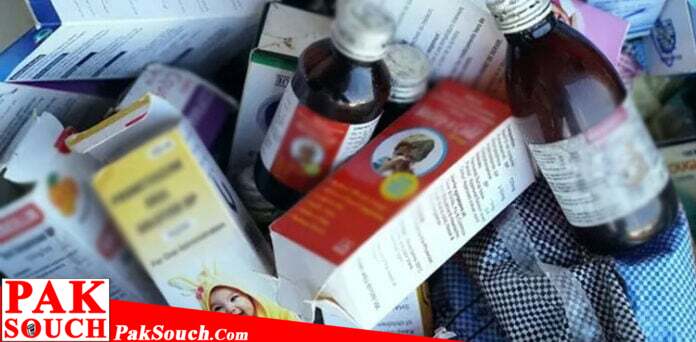A major pharmaceutical scandal has come to light in India following the tragic deaths of several children allegedly caused by contaminated cough syrup. Authorities have widened their investigation after two Gujarat-based pharmaceutical companies came under suspicion for producing or supplying the syrup linked to the fatalities.
According to official reports, the deaths occurred in the Indian states of Madhya Pradesh and Rajasthan, where children reportedly consumed a brand of cough syrup known as “Coldruf Cough Syrup.” What began as an isolated incident has now evolved into a serious nationwide health crisis, raising new questions about the safety of locally manufactured medicines and the oversight of India’s massive pharmaceutical industry.
Initial findings from health and drug regulatory authorities suggest that the syrup in question was manufactured or supplied by pharmaceutical units located in Ahmedabad and Surendranagar, Gujarat. Both facilities are now under active scrutiny for their potential role in producing or distributing the toxic batch.
A special team from Delhi has collected samples of the suspect cough syrup for laboratory testing. Preliminary analysis has reportedly revealed that a private pharmaceutical company in Surendranagar supplied raw materials used in the production of the syrup to another company based in Madhya Pradesh. Officials believe that the contamination may have occurred during the sourcing or formulation process of these raw ingredients.
In response to the growing outcry, the Gandhinagar Drug Control Department has launched a formal inquiry into both Gujarat-based companies. Investigators are now working to determine whether poor quality control, negligence, or deliberate malpractice was involved. Samples of the suspect syrups have been sent to central laboratories for chemical analysis, particularly to detect toxic compounds such as diethylene glycol (DEG) and ethylene glycol (EG)—industrial-grade chemicals that have been linked to numerous mass poisoning incidents globally.
Officials from India’s Central Drugs Standard Control Organization (CDSCO) and local state drug authorities have begun coordinating efforts to trace the entire supply chain of the affected product, from raw material procurement to retail distribution. The move follows mounting pressure from health activists and grieving families demanding accountability and stricter regulatory enforcement.
The Health Ministry has reportedly instructed all state authorities to identify and recall any existing stock of the suspect cough syrup from pharmacies and hospitals. Drug inspectors have been deployed to conduct surprise checks at production sites and warehouses to prevent further distribution.
Pharmaceutical experts have warned that India’s growing reputation as the “pharmacy of the developing world” could be severely undermined by recurring safety lapses. The country has already faced international criticism in recent years following similar incidents in The Gambia, Uzbekistan, and Cameroon, where locally manufactured cough syrups containing toxic chemicals were linked to the deaths of dozens of children.
Public health professionals emphasize that the latest episode highlights systemic weaknesses in India’s drug manufacturing and inspection system, where thousands of small and medium-sized pharmaceutical units operate with limited oversight. Many of these firms depend on subcontracted suppliers for raw ingredients, making traceability and quality assurance extremely challenging.
So far, neither of the two companies under investigation has issued an official statement. Their owners have reportedly declined to comment on the allegations while the probe remains ongoing. However, sources within the regulatory agencies suggest that the companies could face severe penalties, including suspension of manufacturing licenses, if found guilty of negligence or violation of drug safety laws.
The Drug Controller General of India (DCGI) has vowed to ensure a transparent and thorough investigation, promising that no entity involved in compromising public health will be spared. Meanwhile, the families of the deceased children continue to demand justice and compensation, urging the government to impose stricter measures to prevent such tragedies in the future.










